I’m just gonna say it: Candyland is a boring game.
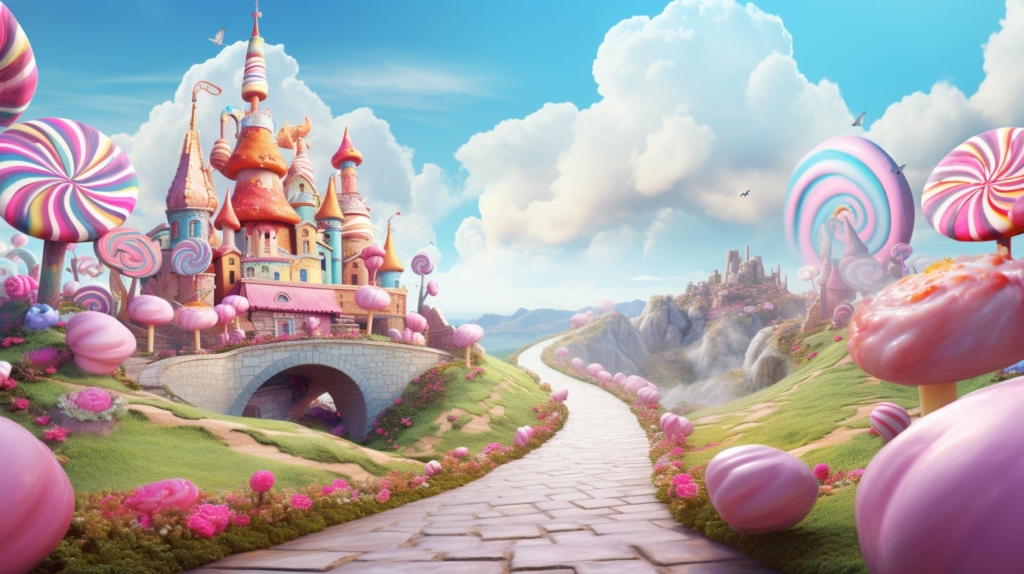
Candyland art by Midjourney
I’ve played this game dozens – maybe hundreds – of times with my own children. We don’t play it anymore, because now that they are older, they agree that it is boring to play. But when they were young, this game was great for toddlers who were just learning how to play board games, and how to fail gracefully.
The rules are simple enough to learn. The game teaches you about taking turns, and being behind, and playing fair, without getting distracted by challenge or difficulty.
In Candyland, everyone starts at the same position on the board. One by one, you draw a card. Every card has a different colored square or two. You advance your token to the next space on the rainbow-colored path which matches the color on the card you drew.
There is no strategy in the game. Winning is purely based on luck. Any player can win or lose, depending on the cards they draw. There is no world championship in Candyland, and no one plays it competitively. It gets boring quickly. Nobody wants to play a game that is too easy for very long.
Chess is very different. There is not one path to victory, there are an infinite number of potential paths. It’s been said that there are more variations on a game of chess than there are grains of sand on the beaches of the earth, or stars in the sky. Luck has a very minimal role to play in the game of chess.
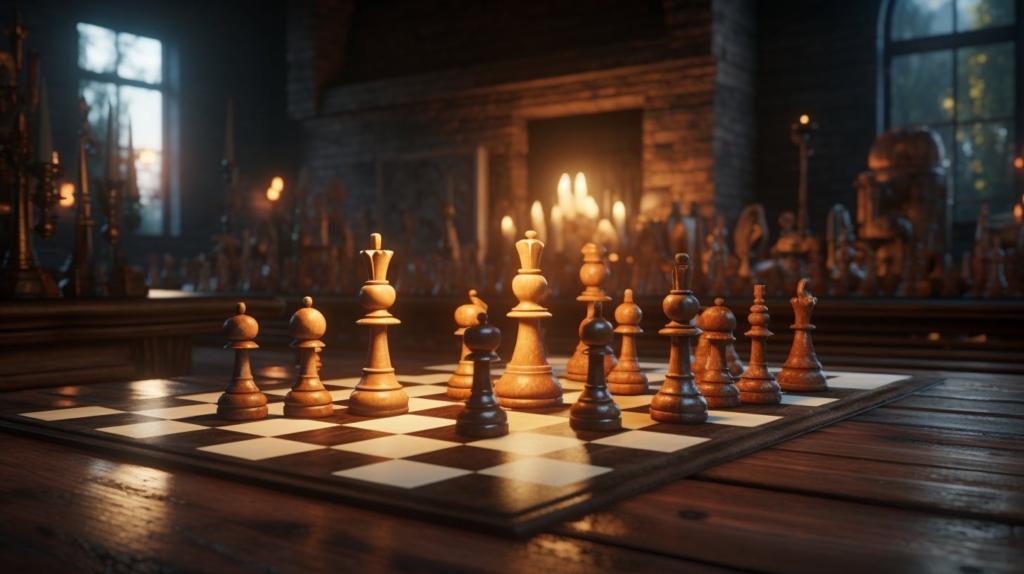
Chess art by Midjourney
A grandmaster has gained immense proficiency in the game of chess, after learning all the ways to lose.
While Candyland may teach you how to play a game, it will not help you improve how well you play. Improvement comes from learning how to handle failure.
Adversity develops resilience.
A master is just a novice who has failed thousands of times.
To earn mastery of anything – a skill, a game, or a lifestyle – you must be willing to fail. Going through failure repeatedly gives you a depth of knowledge that cannot be learned by any other method.
“Adversity has the effect of eliciting talents which, in prosperous circumstances, would have lain dormant.” – Horace
The weakest are the ones who choose the easy way out. Those who give up when the going gets hard, they don’t earn deep proficiency when they quit. They don’t develop resilience. But those who are willing to endure the difficulties of adversity, they are the ones who develop an ability to withstand further pressure. In her book Grit, author Angela Duckworth tells us, “Enthusiasm is common, endurance is rare.”
The finest swords require the most heat and destruction. When forging a sword, iron is brittle and can easily be broken. But if you heat the iron and pound on it for a long time, between the hammer and the anvil, resilience is forged.
Sharpening a blade has a similar effect. There are minor impurities in any freshly-forged blade, small bumps that dull the edge. It is only through the patient whetstone that imperfection is worn away.
Friction keeps you sharp.
Doing hard things make you better at doing hard things.
Resilience is not developed in an easy life. Those who endure difficulties are better prepared for future hardships. Greatness can only be attained by those willing to endure failure.
Resilience creates strength.
According to a study by BJ Shoenfeld, in the 2010 Journal of Strength and Conditioning Research, there are only three causes of muscle growth: mechanical loading, metabolic stress, and muscle damage. If you want to build bigger muscles, you need to either: – lift heavy things, – lift them slowly, or – lift things that are so heavy they tear your muscle fibers.
When your muscles repair from lifting something too heavy, they will grow back bigger and stronger. Without adversity, you will not improve your strength.
You need both success and challenge to get better at doing hard things.
Finding the balance between difficulty and competence is the pathway to growth. If something is too hard, you could damage yourself beyond the ability to perform at all. But if something is too easy, you will get bored, and disengage.
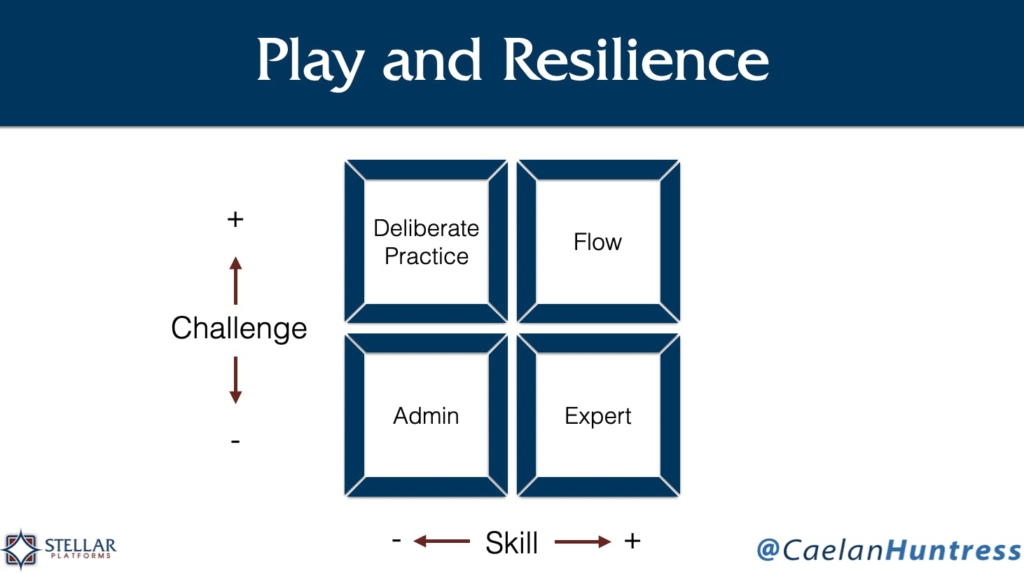
Ask any expert about their topic, and you will find some area where they are bored. They have attained a mastery of the skill, and they no longer face any challenge. For them to attain the state of Flow, described by Mihaly Csikszentmihalyi in his book of the same name, they must endure challenge.
“A happy life consists not in the absence, but in the mastery of hardships.” – Helen Keller
In 2019 there was a study of resistance training on a space crew published in Frontiers of Physiology. They found that training with three sets of weights in zero gravity gave superior results, compared to training with a single set of weights.
With one set of weights, you can master the movements, and your progress will decrease. By using different sets of weights, you can preserve the challenge and adversity that leads to growth.
Challenge makes you stronger.
You have to be better when it’s hard. The difficulties of your life will wear down your flaws, because your flaws are where you are weakest. After the challenge of stress, only the purest qualities remain.
“The gift of failure is that it reveals what matters to you, shows you when you’re out of alignment, and reveals a growth edge.” – Charlie Gilkey
Your challenges are the steps to your eventual success. Failure is inevitable, and if you’re not failing and making the occasional bad decision, you’re not doing your best work.
Mario Mario – the first player of the Mario brothers – is always dying. But what doesn’t kill him only makes him smaller.
If he has a Magic Mushroom, he becomes Super Mario, and being hit by a fireball doesn’t kill him. It just breaks his stride for a brief pause, and returns him to normal size, before he continues on his journey.
Even if Mario falls into a pit, he will lose a life, and then start back at the beginning to try again.
The best players of games are not the ones who get it perfect on the first try. The masters of Super Mario Brothers are the ones who play a lot, fail a lot, and learn from their mistakes.
“I’ve always had the view that how successful you are is really a function of how you deal with failure. If you deal with failure well and you persist, you have a high probability of being successful.” – Bill Ackman
Public school taught me how to win at tests, but failing games taught me how to win at life. Failing is part of learning. You will make mistakes, and that’s okay. Nobody gets to learn without failing a few times. If you lose a life, just play again.
Becoming comfortable with repetitive failure allows you to stay deep in the learning process. Mastery comes from understanding all possible permutations of failure. Enjoying failure gives you access to that breadth of knowledge that is only attainable to the losers.
“Ever tried. Ever failed. No matter. Try Again. Fail again. Fail better.” – Samuel Beckett
Failure feeds learning if it’s fun
What is a skill you have earned due to hardship?
Write down the five biggest challenges you have endured in your life, and write the lesson learned or the strength you gained from each one. You may find that your hardest times gave you the greatest gifts of your life.
You’re going to mess up a few times when you learn anything new. Accepting that failing is part of the process will help you to learn faster, and enjoy it along the way.
“Failure is the condiment that gives success its flavor.” – Truman Capote
This article is an excerpt from my next book, Playful Productivity. To get notified when it’s ready, sign up for the wait list here.

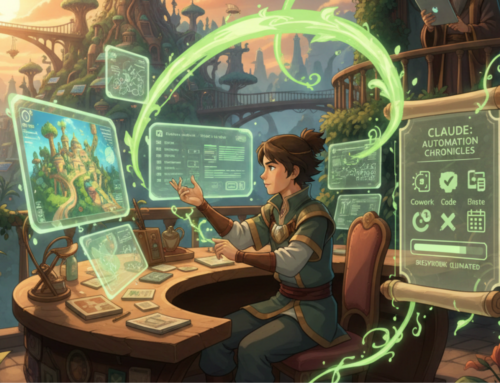

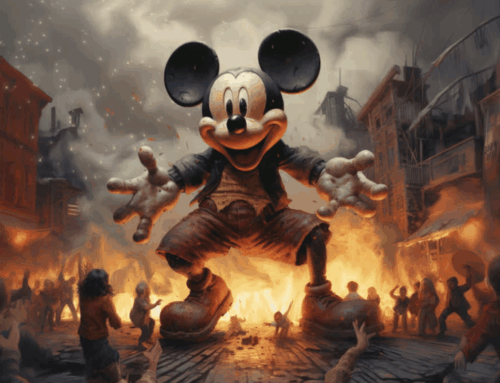

Leave A Comment